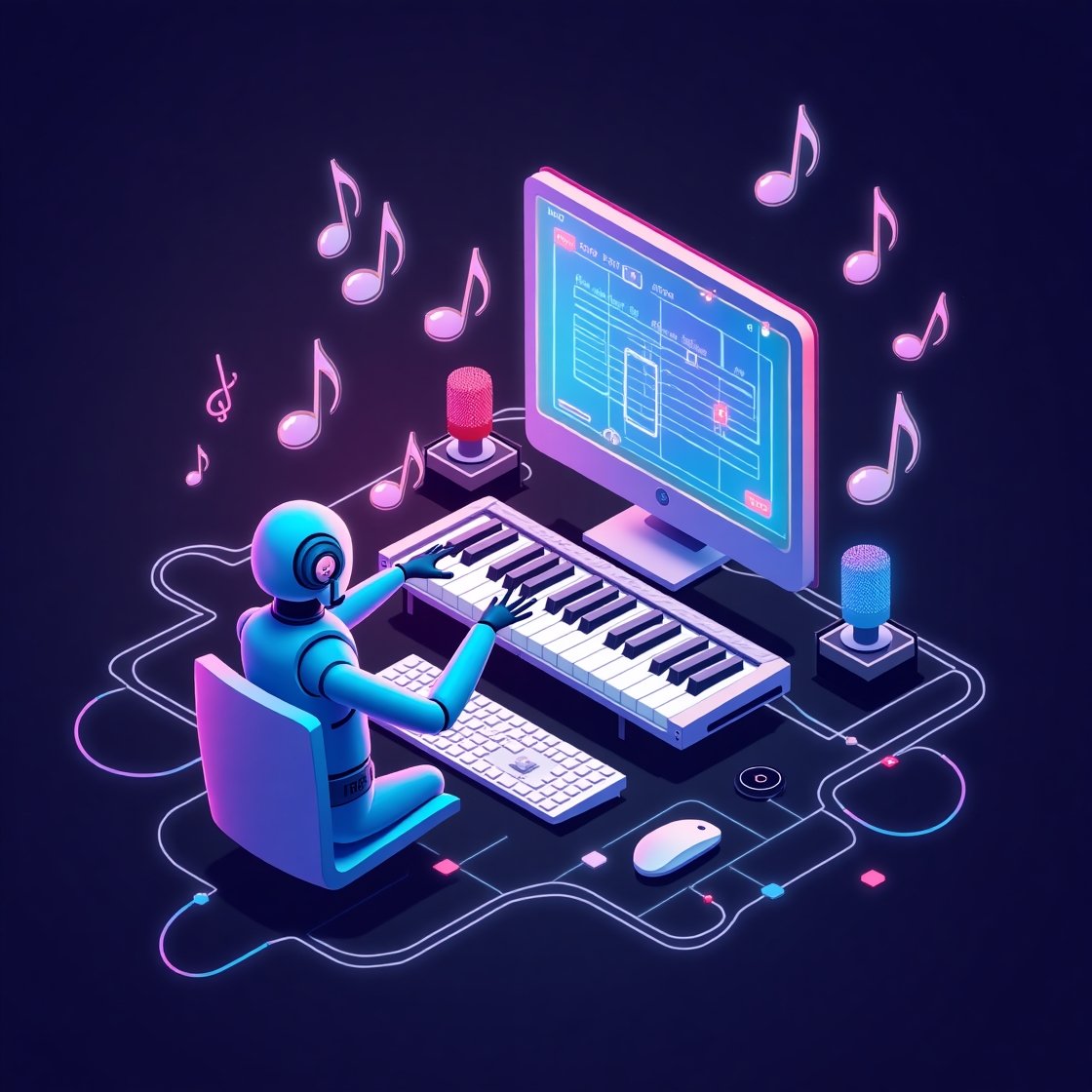Artificial Intelligence (AI) is reshaping the landscape of music production, offering innovative tools that enhance creativity and streamline workflows. From composition to mastering, AI is becoming an integral part of the music industry, providing opportunities for both established and aspiring artists. By leveraging AI technologies, musicians and producers can experiment with new sounds, automate repetitive tasks, and even collaborate with AI-generated compositions to create unique and compelling music.
The Evolution of AI in Music Production
Early Innovations
- Algorithmic Composition: AI’s initial role in music involved generating melodies and harmonies through simple algorithms, providing a new way to explore musical ideas.
- Digital Audio Workstations (DAWs): Early AI integration in DAWs offered basic automation and effects processing, allowing producers to streamline their workflows and enhance audio quality.
Current Trends
- Machine Learning in Sound Design: Today, AI is used to create complex soundscapes and unique audio effects, pushing the boundaries of what is possible in sound design.
- AI-Driven Music Analysis: Advanced tools analyze musical trends and patterns, providing insights that inform production decisions and help artists stay ahead of industry trends.
Applications of AI in Music Production
Composition and Songwriting
- AI Composers: AI tools are now capable of generating musical ideas and even entire compositions, serving as a creative partner for songwriters in exploring new musical concepts.
- Lyric Generation: With AI, artists can craft lyrics and explore various themes, helping to overcome writer’s block and inspire new lyrical directions.
Mixing and Mastering
- Automated Mixing Tools: AI-driven software assists in balancing audio tracks, ensuring a polished and professional sound with greater efficiency.
- Mastering Algorithms: AI technologies are employed to enhance the final audio output, making it ready for distribution by meeting industry standards.
Sound Engineering and Design
- Virtual Instruments: AI-powered instruments can replicate the sounds of traditional instruments with a high degree of realism, offering new possibilities for music production.
- Sound Innovation: AI tools are capable of creating entirely new sounds and effects, expanding the sonic palette available to musicians and producers.
Benefits of AI in Music Production
Increased Creativity
- Endless Inspiration: AI provides a wealth of musical ideas, enabling artists to explore new creative directions and push the boundaries of their musical expression.
- Collaborative Tools: By offering AI as a creative partner, musicians can experiment and refine ideas, fostering a new form of collaboration between human and machine.
Streamlined Workflows
- Time Efficiency: AI automates repetitive tasks, allowing producers to focus more on the creative aspects of music production, thereby increasing productivity.
- Cost Reduction: By reducing the need for extensive manual labor and expensive studio time, AI helps lower production costs, making high-quality music production more accessible to independent artists and small studios.
Challenges and Ethical Considerations
Artistic Integrity
- Originality Concerns: Ensuring that AI-generated music maintains a sense of artistic authenticity and doesn’t compromise the unique voice of the artist.
- Creative Control: Balancing AI’s input with human creativity is critical to preserving the artist’s vision and ensuring that technology enhances rather than overrides the artistic process.
Legal and Copyright Issues
- Intellectual Property: Navigating copyright laws concerning AI-generated music is complex, as it can be unclear who owns the rights to a piece created with AI assistance.
- Ownership Rights: Determining the rightful owner of music produced with the help of AI tools is an ongoing challenge, requiring updates to existing legal frameworks to accommodate the new technology.
Future Outlook
Innovations on the Horizon
- AI-Enhanced Live Performances: The potential for AI to augment live shows with real-time music generation and effects, creating dynamic and interactive experiences for audiences.
- Integration with Virtual Reality: As VR technology advances, AI’s role in creating immersive music experiences could redefine how audiences engage with music, offering new ways to experience sound and performance.
AI’s influence on music production is just beginning, with endless possibilities for innovation and creativity on the horizon. As musicians and producers continue to embrace AI, balancing technological advancements with artistic integrity will be key to ensuring a vibrant and dynamic future for the music industry.
Conclusion
AI is undeniably transforming the music production landscape by providing innovative tools that enhance creativity and streamline workflows. From composition and songwriting to mixing and mastering, AI offers new possibilities that are revolutionizing how music is created and consumed. However, as we continue to integrate AI into music production, it is crucial to address challenges related to artistic integrity, copyright, and creative control. By doing so, the music industry can embrace AI technology in a way that complements human artistry, ensuring a harmonious balance between innovation and tradition. The future of music production promises to be exciting and dynamic, with AI playing a pivotal role in shaping the soundscapes of tomorrow.

